Governor Sisolak along with the state board of pharmacy recently drafted an executive order banning physicians from using hydroxychloroquine for coronavirus patients. He apparently went back a few days later because of some outcry and agreed that we could use it in the hospital only. This has really bothered me since I heard this. I don't think politicians who have no understanding of medicine at all should be telling physicians how to practice medicine. I guess they do in many respects anyway, but it is generally by actual laws that are debated and passed, and overseen by the board of medical examiners which consist mostly of physicians who have a good understanding of medicine. This is something entirely different. Governor Sisolak decided, undoubtedly with input from someone, that he would simply decree that physicians could not use hydroxychloroquine in the state of Nevada outside of the hospital. Even if the state board of pharmacy drafted this executive order for him, I still don't believe it is their place to be able to simply make a blanket decision that hampers physicians.
What follows is a fairly lengthy discussion of why I believe physicians should be able to use hydroxychloroquine if they feel the benefit outweighs the risk. Keep in mind this does not really affect me, because I only practice inpatient medicine and I can prescribe it if I feel it is warranted. My colleagues in the outpatient setting, however, I feel may be hampered from actually helping people. In fact, also keep in mind that I am not convinced that hydroxychloroquine is really useful in the treatment of coronavirus. At this time, I concede that there is no good evidence that hydroxychloroquine helps coronavirus. There is even some evidence that it does nothing whatsoever, however the only studies I can find are all done on hospitalized patients. My personal feeling, is that since hydroxychloroquine seems to work in a test tube with human tissues by keeping the virus from entering the cells and keeping them from being able to replicate, that if we are waiting until someone is sick enough to be in the hospital, it is too late to really try this medicine. The virus has already entered the cells and has been replicating furiously for some time by the time they get into the hospital. I think my outpatient colleagues should have the opportunity to try it immediately in someone diagnosed with coronavirus and perhaps we can keep them from becoming so ill. As a primary care physician, if I was doing outpatient medicine, I would have likely tried hydroxychloroquine in patients early on. This is one of the most prescribed medications in the history of medicine, it is extraordinarily safe for short term use, and with coronavirus we really have nothing else to try. I certainly would have been using it if given the opportunity early in the course of the disease, and would take it myself if it was available and I got symptomatic coronavirus. My personal opinion is that if it turns out that hydroxychloraquine actually is effective in keeping early coronavirus cases from progressing to severe coronavirus cases, then governor Sisolak and the state board of pharmacy have blood on their hands by keeping physicians from being able to use an extraordinarily commonly used medicine to treat a potentially deadly disease for which we have no other treatment at this time.
So why did governor Sisolak do this? I don't know for sure. He stated that it was to keep this medicine from being hoarded and to keep it available for the people who are already on it as well as safety concerns. Many governors have done this, and they always cite safety concerns as well. In fact, Dr. Rick Bright, who just testified in front of a house select committee as a whistle blower, was initially excited about hydroxychloroquine, secured the Emergency Use Authorization from the FDA for it, and thought we should be using it early in the course of the disease. When it started getting pushed by President Trump, and he became concerned that it would be available without close physician oversight, he changed his mind and decided that it should not be used at all. The press keeps pushing the fact that it causes QT prolongation, a potential heart problem that could ultimately lead to death, as well as other safety concerns. As of April 25, the last update on the CDC website, they state “there are no drugs or other therapeutics approved by the United States FDA to prevent or treat COVID-19.” They recommend supplemental oxygen and mechanical ventilation and other supportive cares as the only treatment for this potentially fatal disease. The NIH, as of today, May 16, 2020, states "there are insufficient clinical data to recommend either for or against using chloroquine or hydroxychloroquine for the treatment of COVID-19.” Generally when they have insufficient clinical data to recommend either for or against using a medication or treatment, that leaves is up to the physician to do a risk-benefit analysis on their particular patient and decide whether they feel it is a reasonable approach for that particular patient. Governor Sisolak took this completely out of our hands and will not even allow us to perform this analysis and make this decision in discussion with that particular patient. These governors seem to worry about safety, so what about safety?
As I said above, hydroxychloroquine is one of the most prescribed drugs in the history of medications, and is listed on the world health organization's list of "essential medications," which should always be kept available and affordable. It is used mainly for malaria, which we don't really even think about in this country, however throughout the world it is extraordinarily common and it is a major cause of death, particularly in children. We give this medication to prevent as well as to treat malaria. I have prescribed it personally for people traveling to endemic areas of the world for malaria. According to the world health organization, there were 228 million cases of malaria worldwide in 2018. They list 405,000 deaths. That gives malaria, a disease for which we have treatments, a case fatality rate of 0.17%. And yet, we freely prescribe hydroxychloroquine to prevent this disease to people who are traveling to these areas. We use it for years on end in people with rheumatoid arthritis and lupus without any recommendation of monitoring their heart unless they have other conditions which would indicate monitoring is necessary.
As physicians, we perform a risk benefit analysis on virtually every patient for which we prescribe medications, and we decide what is safest and most likely to help their condition based on their physiology, their comorbidities, and their other medications, habits, supplements, etc. We evaluate whether they have a need for baseline EKG and monitoring of the EKG periodically to follow their QT interval. Much has been made in the press about the severe dangers of QT prolongation of hydroxychloroquine, and there is a very long list of medications as well as other conditions that cause QT prolongation. As physicians, we all know this, and we are careful to avoid prescribing these medications together in combinations if possible. Unfortunately, this is sometimes unavoidable for certain conditions. I had thought a list of medications here would be helpful to put this in perspective for nonmedical people, but it is literally hundreds of medications. Instead I picked out some medications and conditions that cause QT prolongation that non-medical people might recognize. There are common things like low potassium, magnesium, or calcium. Liquid protein diets, low thyroid, amiodarone, quinine, Diflucan used for yeast infections, the common antibiotics Levaquin, Cipro and Erythromycin, several HIV medications, hydroxyzine which is a commonly used antihistamine, hydrocodone which is in Vicodin and Lortab, methadone, albuterol which is used for asthma in virtually every asthmatic and COPD patient, diuretics, Zofran, Reglan, donepezil which is a commonly used Alzheimer's drug, lexapro, Prozac, Zoloft, Paxil, and many, many other medications. In fact, in a list I read on UpToDate, a very commonly used medical program that we use to research medical topics for patient care, hydroxychloroquine is listed as "lower risk" with "rare reports" of QT prolongation.
So what about direct safety warnings? The package inserts for these drugs are very extensive and list virtually all information that is known about the drugs. There is a section called a “Black box warning," which has been required by the FDA since the 1970s to be printed in the package inserts of medications for which there are particularly dangerous things that physicians need to know about a drug. Traditionally, physicians have taken blackbox warnings extremely seriously, because it is always an important warning about the drug, and admittedly it is the first thing a lawyer looks at if there is ever a problem. There are no blackbox warnings for hydroxychloroquine. There are, however, black box warning for hundreds of drugs. Some of them you might recognize such as the following: Plavix, all combination estrogen and progesterone birth control pills, Cipro and Levaquin, methadone, Actos and Avandia for diabetes, Prozac, Zoloft, and paxil, oxycodone and hydrocodone, and even ibuprofen and naproxen. Hydroxychloroquine is literally safer than ibuprofen and naproxen according to the FDA.
Do I take QT prolongation seriously? Of course I do. QT prolongation on the EKG can lead to a malignant arrhythmia called Torsades du Pointes, and people die from that. It is really quite rare, however, unless somebody already has an underlying heart condition called congenital QT syndrome, or if they are on multiple drugs that cause QT prolongation. In fact, irreversible eye problems are a bigger concern with hydroxychloroquine, but in a person with average risk, a baseline eye exam is recommended when we start the medication, and then it is not even recommend it again for five years. The suggested dosage as an outpatient for coronavirus is only five days of a normal dose which would be used for rheumatoid arthritis or lupus for many years. It is not some extremely high, potentially toxic dose. Could there be problems? Of course there could. Congenital QT syndrome is fairly rare, about one and 7000 people, and we really can't make the diagnosis unless we do an EKG. This is one of the things that causes people to simply suddenly drop dead when they are running or to simply die in their sleep with no good explanation. We don't screen for congenital QT prolongation with EKGs, however, because you need to do thousands of EKGs in order to find someone with congenital QT prolongation. Should we screen people before we start them on hydroxychloroquine? Obviously, it would not be a bad idea for each individual patient, however that means we should screen people before we start them on hundreds of different medications which are just as dangerous as hydroxychloroquine. You might be pretty irritated if you went to your doctor with bronchitis, and when she prescribed a Z-Pack, she wouldn't give you the prescription until she did an EKG and charged you for it. And since your QT interval can change based on your medications, she would have to do this every time she prescribed any of these medications. It just is not cost-effective, and it is not recommended by any medical society. We could get into a lengthy debate about screening exams, and in medicine we do debate these things all the time. Screening EKGs has turned out to be one that is not recommended by any major medical society before starting these medications. There are exceptions for medications which are really dangerous, and those are all listed in the package insert under monitoring needs to be provided for that particular medication. Some medications require drug levels, blood counts, liver enzymes, kidney tests, and some require EKGs as well. Hydroxychloroquine requires none of these.
So why did I spend the time to write this lengthy note? I did it because I think these governors deciding what physicians can and cannot do without really understanding medicine is a terrible precedent. This was not done by making a new law, where there was open debate, time for comment, testimony by experts, and finally being passed off to the state board of medical examiners for the final regulatory oversight. This was simply an edict issued by a non medical person that hampers the ability of careful, experienced physicians to treat their patients to the best of their ability. Unfortunately, physicians as well as pharmacist immediately bend to this new executive order, because the state board of pharmacy and the state board of medical examiners issue our licenses. The California governor has threatened to shut off the electricity and water to businesses that open against his wishes. How far would governor Sisolak go, and how far will we allow our government to go in general? Right now this is one executive order for one medication. I don't really feel terribly strongly that this medication helps coronavirus, but the thing is, we have nothing else. I would certainly try it, after discussing the risks and benefits with the patient and reviewing their health history and their other medications just like I do with every patient that I put on any medication. And then, if my patients tolerate a five day course well, they have no significant side effects, and they seem to get better more quickly than patients in whom we decided not to use it, then I would continue using it. This is how medicine is done. We sometimes have to try things when we have nothing else. I wouldn't even be having this discussion at all if we had an effective treatment for coronavirus, because I would use that. Unfortunately, we have nothing else. If I were an outpatient primary care provider at this time, I would prefer not to wait and follow the CDC guidelines of using supplemental oxygen and ventilator support in a patient if I felt I might be able to help them avoid that altogether with a safe, well tolerated, widely used drug with 50 years of experience. In fact, this is how we found out that amantadine, a Parkinson's drug, was effective against influenza. Some smart internist who ran a nursing home realized that his patients that had Parkinson's and were on amantadine didn't get influenza, which also can be fatal in that population. He started treating all his patients during influenza season with amantadine, and the ones that tolerated it, he left on it. It turns out he was correct and it worked reasonably well. It is not perfect, and it does have a fair amount of side effects, but we do sometimes use it.
I don't think a politician should take this choice away from me and my patients. I'm close enough to the end of my career that losing my license in this state would not be a disaster, so I might try if I were in a primary care situation. I am licensed in four other states, and would easily be able to get a job within a week. Younger physicians, however, should take this very seriously. Any governor who seizes power like this, and especially one like governor Newsom in California who will shut off water and power to any business that defies him, is very dangerous. As I said in my introduction, if it really does turn out that the early use of coronavirus decreases significantly the number of people who end up in the hospital, on ventilators, or die, then governor Sisolak has blood on his hands directly by keeping primary care physicians from using this medication early, in the outpatient clinic where it would be most useful rather than relegating it to use only in a place where I don't believe it will help at all, because the horse is out of the barn by the time someone is far enough into their illness to need hospitalization. I think we are taking the exact wrong approach here. If we are going to use it, we should be using it very early in the disease where it might help rather than later where I don't believe it will make any difference at all. The state board of pharmacy will also be culpable if it turns out that hydroxychloroquine is useful and they went along with governor Sisolak.
Just for fun, and because one of the nurses was eating black licorice today, I looked up the risks of licorice, which is an herb. It gives the candy its flavor, but you can also buy it as a tea or pills at the health food shop. Black licorice is reportedly used in everything from arthritis to bronchitis, ulcers, herpes, HIV, bacterial and viral infections, polycystic ovary syndrome, and, ironically, lupus. The listed adverse reactions include amenorrhea (no menstrual periods), abnormal heart rhythms, congestive heart failure, edema, erectile dysfunction (!!!), hypertension, hypertensive encephalopathy (brain dysfunction due to very severe high blood pressure), low potassium, low sodium, pulmonary edema (water on the lungs), quadriplegia (that's complete paralysis of both arms and both legs, people!), rhabdomyolysis (muscle breakdown which can cause kidney failure and death), and seizures. My brother-in-law told me 30 years ago that if he eats black licorice, it causes his gout to flareup. Why the hell isn't Sisolak regulating black licorice? It seems as if it is much more dangerous than hydroxychloroquine, especially with only a five day course. Maybe he should shut off the water and electricity to any business that sells black licorice! But I digress. Thanks for reading, I know it was really long, but I really needed to get this off my chest. Stay safe out there, wash your hands, and socially distance whenever it is feasible. +
Views expressed by writers in the commentary section are their own and do not necessarily reflect the point of view of The Fallon Post.
Support local, independent news – contribute to The Fallon Post, your non-profit (501c3) online news source for all things Fallon.
Never miss the local news -- read more on The Fallon Post home page.
The Fallon Post -- 1951 W. Williams #385, Fallon, Nevada 89406

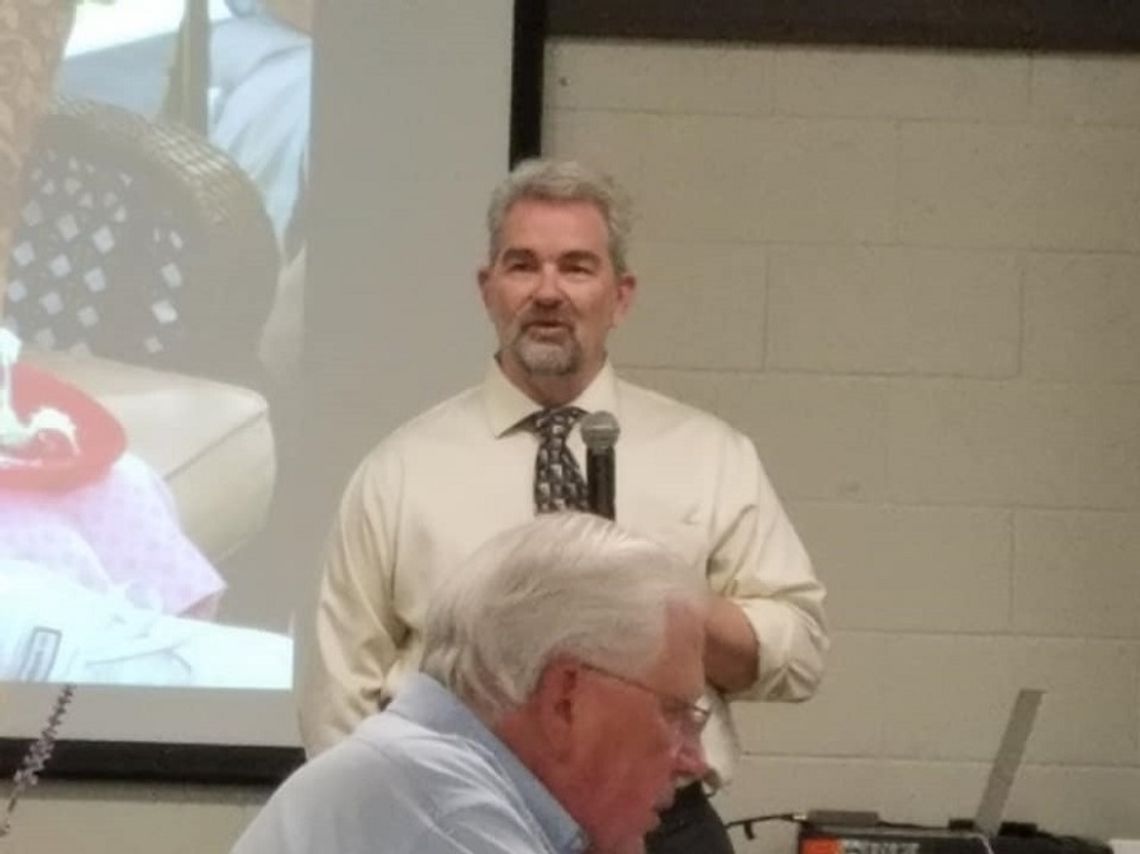



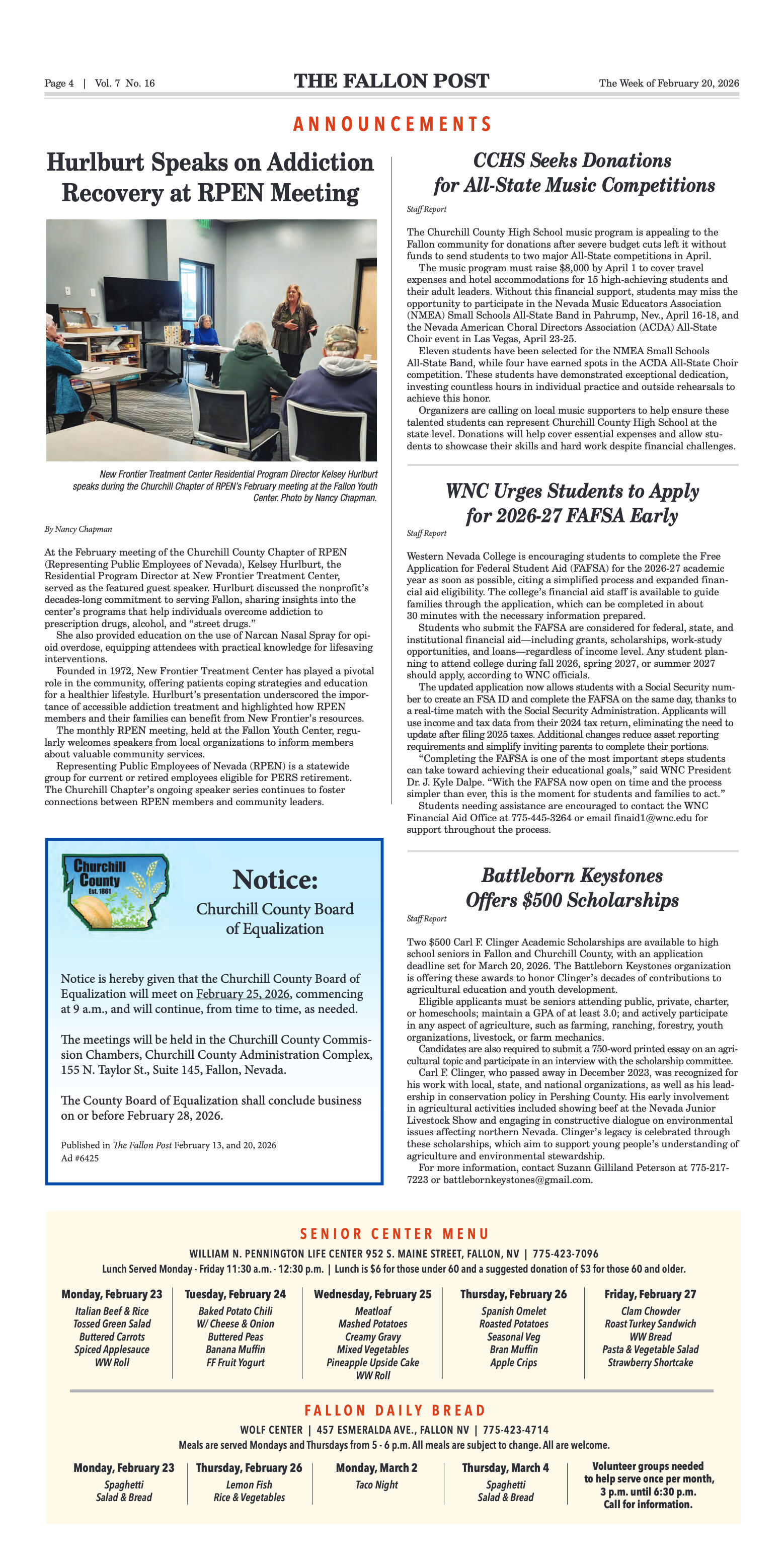
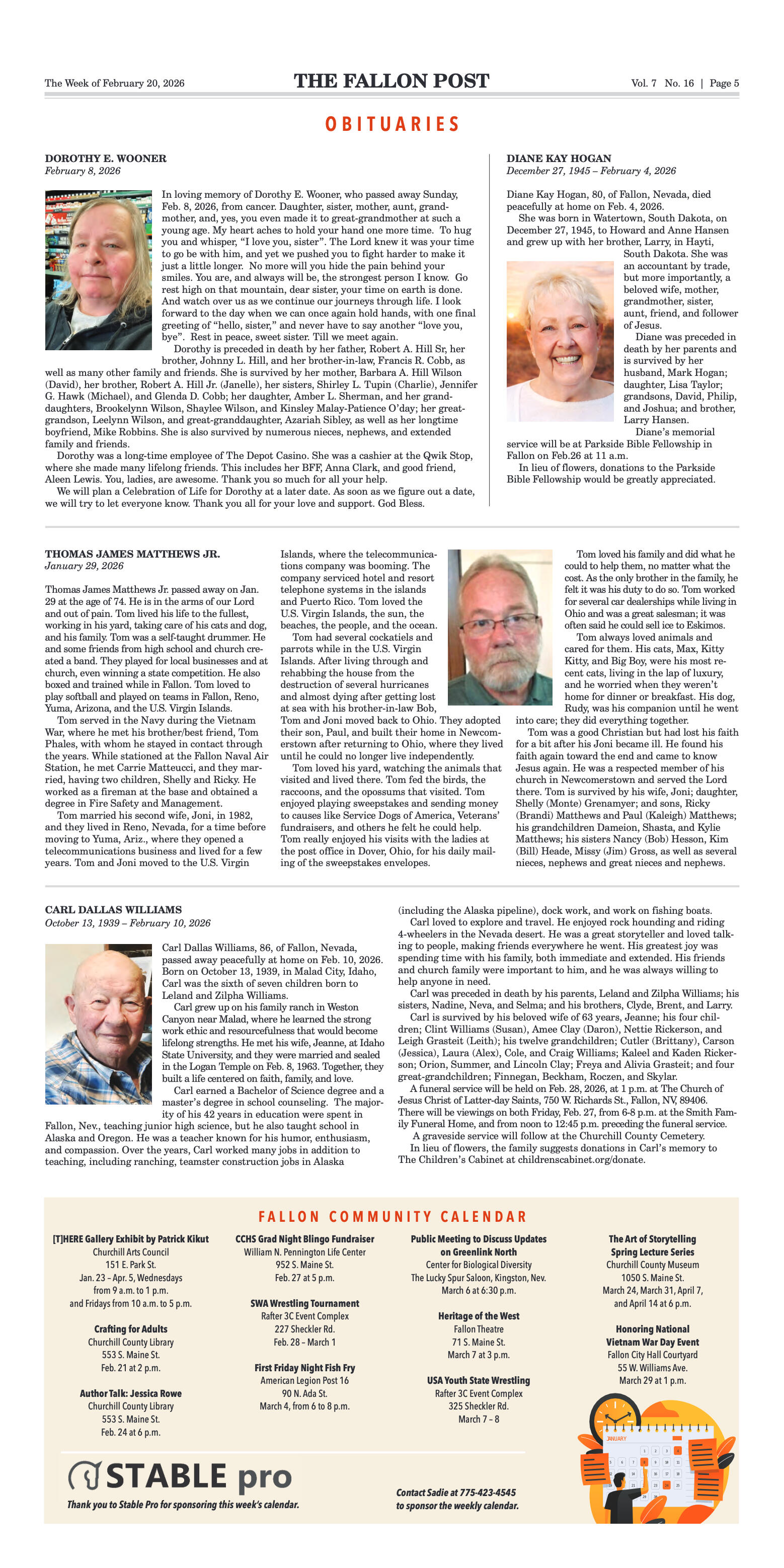
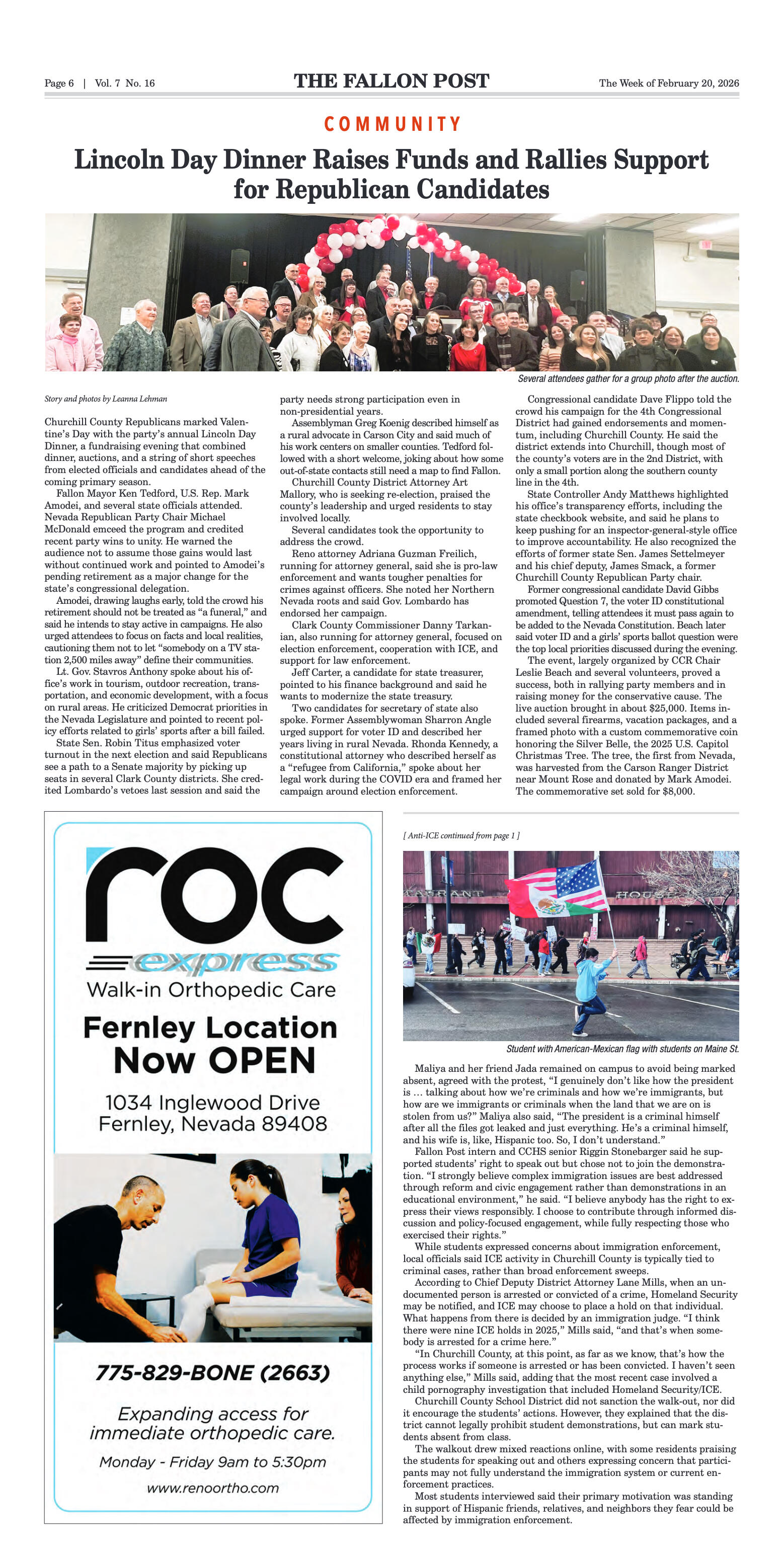


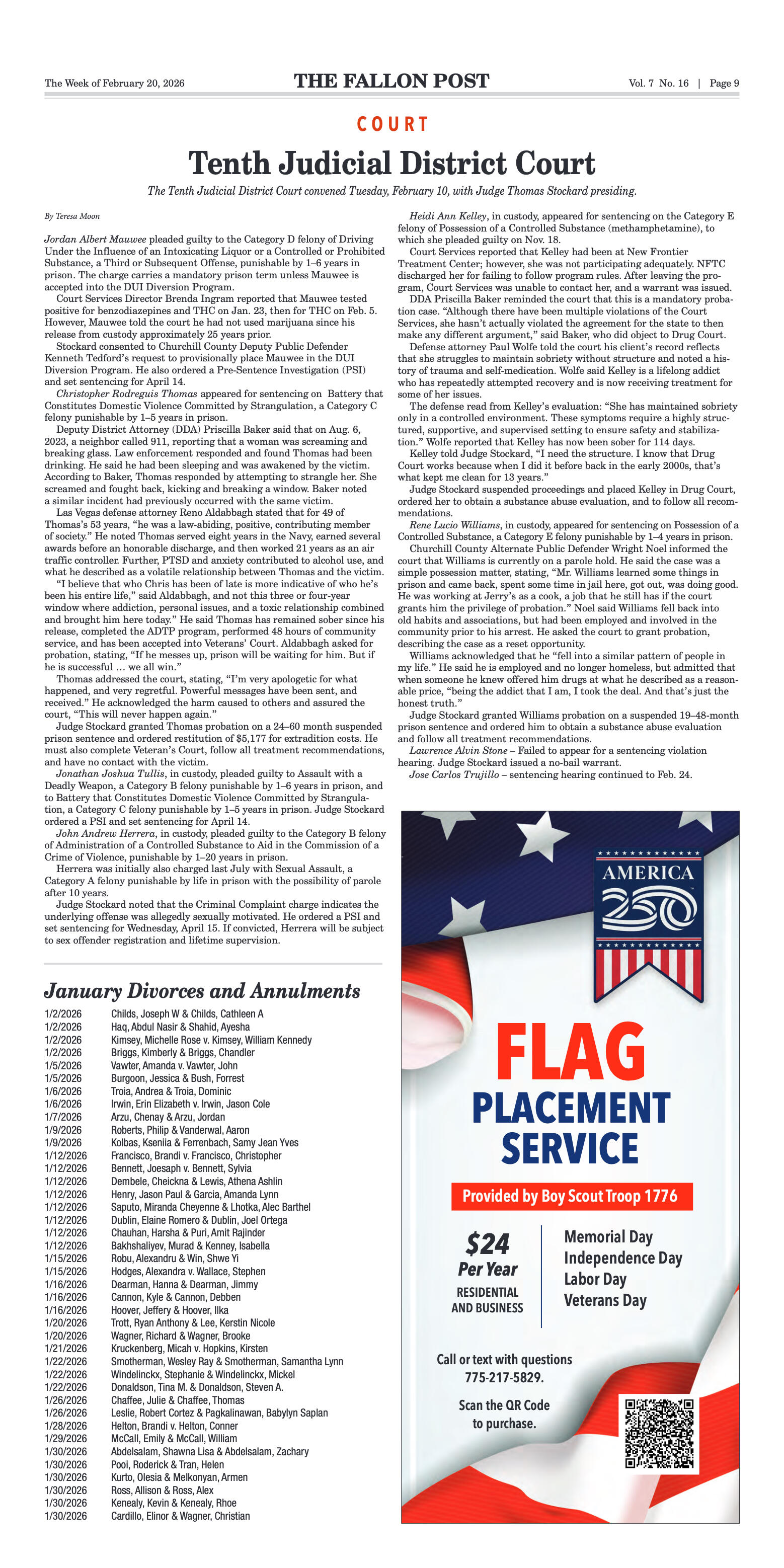



























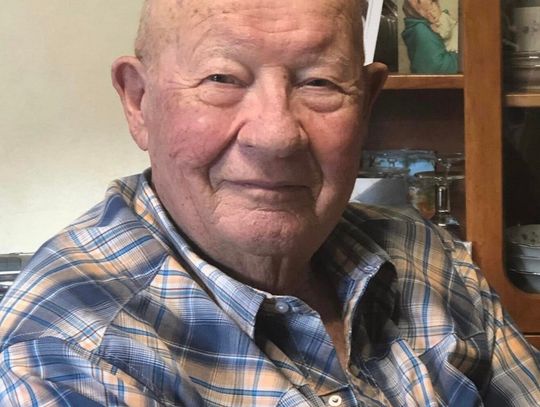





Comment
Comments